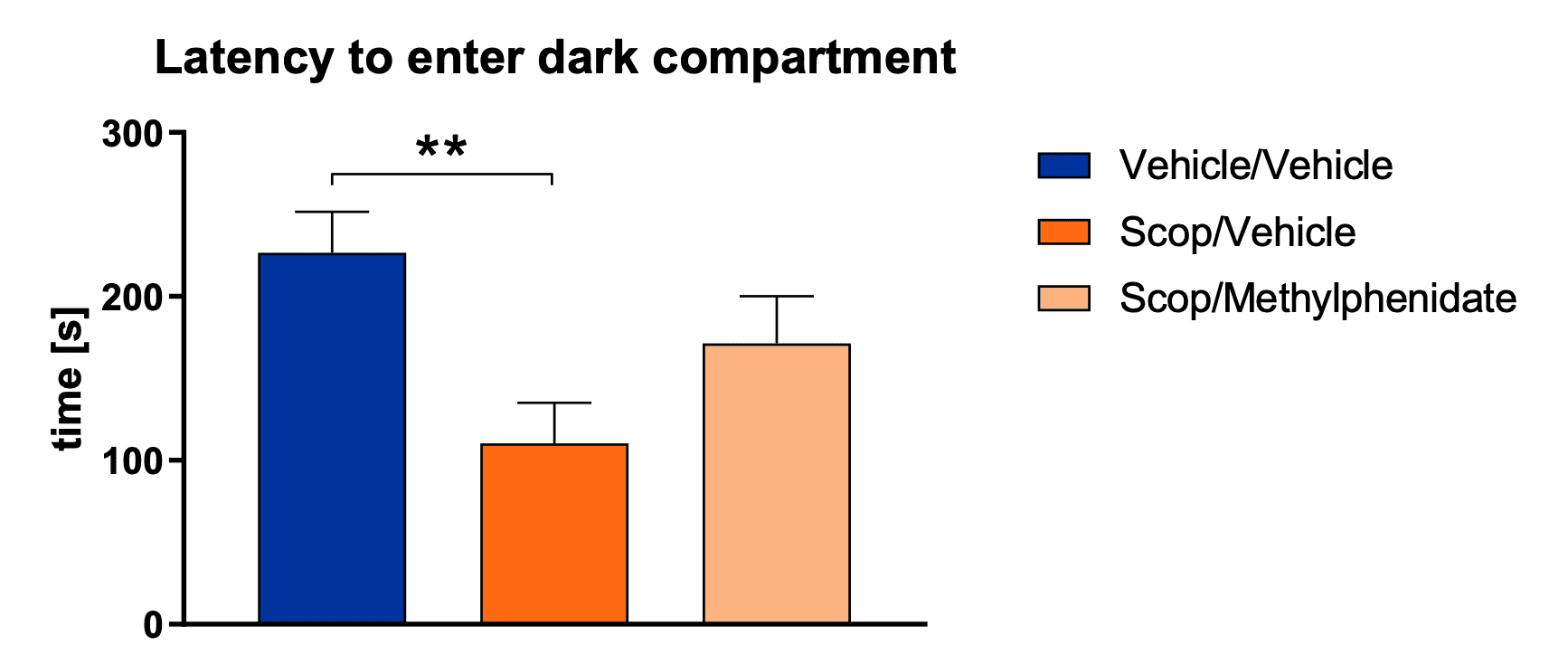Scopolamine-treated Mice
Scopolamine is a tropane alkaloid drug with a competitive antagonistic effect on muscarinic acetylcholine receptors (mAChR). Systemic application of scopolamine disrupts the performance in several reference memory tasks, such as object discrimination, radial arm maze, Morris water maze and fear conditioning in rats. The scopolamine-induced memory impairment can be reversed by cholinesterase inhibitors. This model can thus be used to mimic memory dysfunction observed in dementia and Alzheimer’s disease. Furthermore, it is a useful initial screening tool to identify therapeutic candidates for learning and memory deficits.
The most important characteristics of scopolamine-induced rats are:
- Memory deficits
Treatment of Wistar rats with scopolamine causes a reduced latency to enter the dark compartment in the passive avoidance test. This reduced cognitive function can be reversed by methylphenidate treatment (Figure 1).

Figure 1: Effect of scopolamine (Scop) on passive avoidance response of Wistar rats. Latency to enter the dark compartment. The effect of scopolamine can be reduced by methylphenidate treatment. Mean ± SEM; Kruskal-Wallis test with Dunn`s multiple comparison test. n = 12 per group; **p<0.01.
QPS Neuropharmacology offers a custom-tailored study design for the scopolamine-induced rat model, and we are flexible to accommodate to your special interest. We are also happy to advise you and propose study designs. The scopolamine-induced rat model shows a relevant memory related phenotype very shortly after treatment. This grants a remarkable fast processing time of your memory study. Furthermore, vehicle-injected wild type rats can serve as control needed for proper study design.
We are happy to evaluate the efficacy of your compound in the scopolamine-induced rat model! The most common readout is:
- Memory deficits that can be evaluated by different behavioral tests
